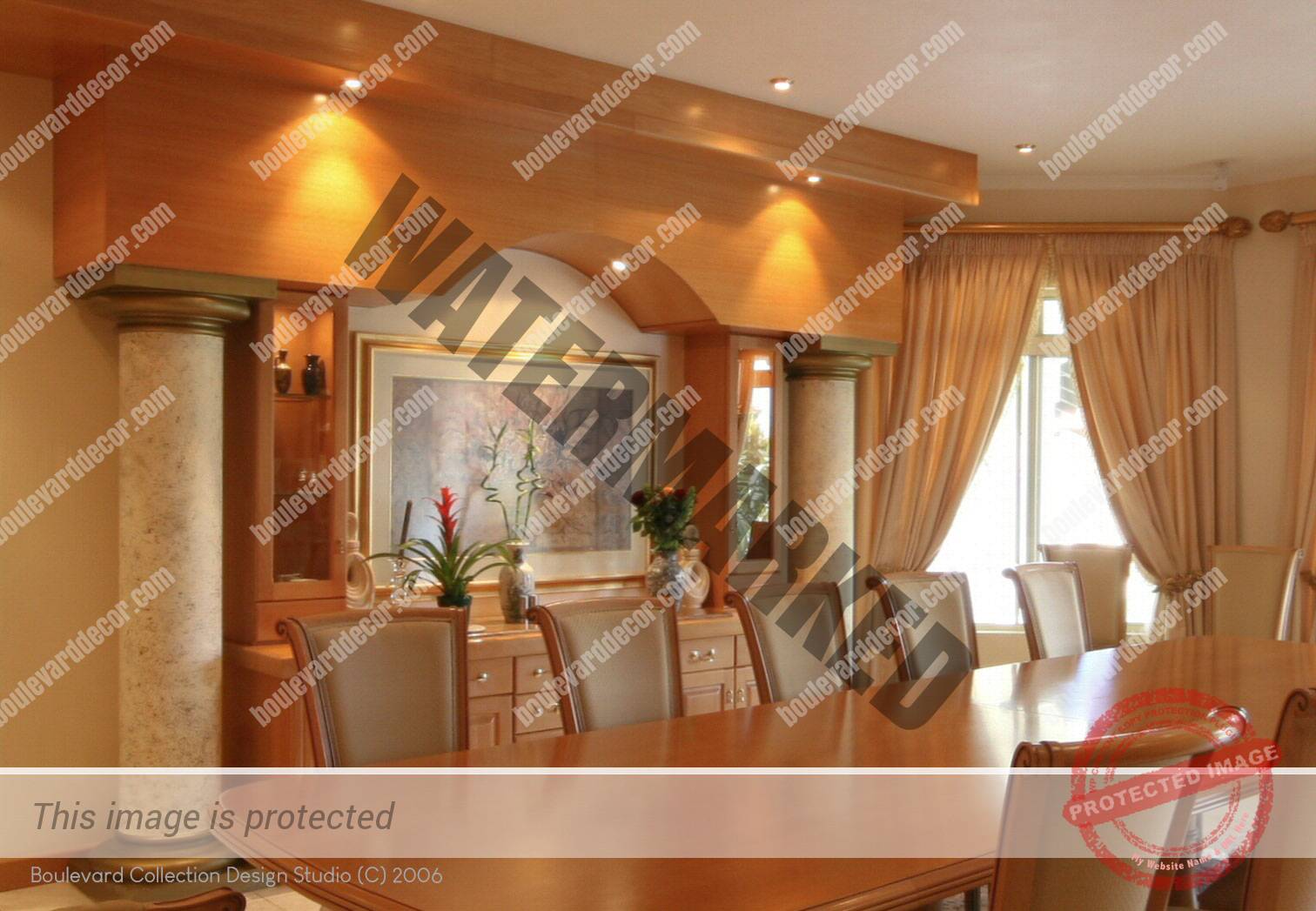
Interior Design vs. Interior Decorating – What is the difference and which one do I need?
Interior design is the art and science of understanding people’s behaviour to create functional spaces within a building. Interior Décor (decorating) is the furnishing or beautifying of that space with fashionable or beautiful effects such as furniture, curtains, table lamps, scatter cushions and ornaments. In short, interior designers may decorate, but decorators do not design.
When you decide to make a few changes to your home, and you realise that you may need a bit of guidance, you will probably start to look for possible professionals that would be able to help you. You will find that some professionals describe their work as interior design while others are interior decorators. You will begin to wonder, “What’s the difference?” And more significantly, “Which one do I need?”
It is a fact: Interior design and interior decorating are often mistaken as the same thing, but the terms are not completely similar. There are many similarities between the two services, but there is a grey area where opinions vary on exactly where to draw the difference.
As you decide which kind of help you need when planning changes in your home, it will help to understand the differences between professional designers and decorators:
Interior Design
- Schooling: Interior design is a profession that requires specific schoolingand formal training. The work involved usually includes studying color and fabric, computer-aided design training, drawing, space planning, furniture design, architecture, etc. Upon graduating, designers often apprentice with a registered and established interior designer before moving on to establish their own companies.
- Credentials: In South Africa, formal training to become an interior designer takes two to four years and is available at professional design schools or colleges and universities. Graduates with a bachelor’s degree or diploma would most likely begin a one to three-year apprenticeship programme at a design or architecture firm and work under the supervision of an experienced interior designer. Graduates with a certificate would usually start their career as an assistant to an interior designer. Practical experience is indispensable in this profession, and registering with a renowned organisation adds credibility.
- What they do: Interior designers enhance the function, safety and aesthetics of interior spaces, while taking into account how different colours, textures, furniture, lighting and space work together to meet clients’ needs. Designers are comfortable with spatial planning and can help design and renovate interiors—from drawing up the initial floor plans to placing the last decorative accent. Designers don’t just enhance the look; they also enhance the function of a room.
- Who they work with: Interior designers often work closely with architects and contractors to help achieve the look the client desires. They work with both private and public spaces, including residences, shopping malls, schools, offices and hospitals. Some interior designers specialise in certain rooms, like bathrooms and kitchens, while others may specialise in a certain type of design, like Feng Shui design or eco-friendly design.
Interior Decorating
- Schooling: To practice professionally, interior decorators don’t require to have formal training or schooling because they focus primarily on aesthetics and don’t participate in renovations or structural planning, however it is always a benefit. A decorator comes into the picture after the structural planning and execution are completed to focus on the surface look of the space. Many professional interior decorators have college degrees in related fields, but it is not a requirement for the profession.
- Credentials: Even though a specified degree is not required to become an interior decorator, many courses are available. These courses often focus on color and fabric, room layouts, space planning, furniture styles, and more.
- What they do: Interior decorators use elements like paint, lighting, and fabric to create living spaces that match their owner’s personality. Keeping in mind things like budget, function, and personal taste, they come up with a vision for the interior space. For new or renovated spaces, they can help clients decide on a style, choose a colour scheme, selection and procurement of furniture and accessories.
- Who they work with: Decorators don’t generally work with any contractors or architects since structural work is usually complete before they come on board. They do, however, work with furniture suppliers, upholsterers, and other industry professionals. In general, they work directly with homeowners or business managers, and in cases with the interior designer.
Should I Hire a Designer or a Decorator?
Who you should hire depends on your needs. If structural changes e.g removing a wall, moving plumbing or wiring around or adding windows are necessary, then generally an interior designer is the better choice. Designers can help plan for significant structural changes and help make them happen by working directly with architects and builders.
Therefore, if there are no structural changes or design work (e.g ceilings) needed but you need aesthetic help—deciding on a style; choosing wallpaper, paint, and furnishings; picking window treatments, and choosing lighting and accessories—an interior decorator will probably do the trick. Experienced decorators know what works together and can transform a room to suit a client’s needs and desires.
When hiring a professional, begin with clearly understanding your own needs and look for a pro who has a proven reputation for meeting those needs, no matter what the formal job title. It’s generally true that designers are for space planning and structural execution, while decorators are for the final aesthetic decisions. But don’t be afraid to cross lines to hire a decorator with a reputation as a good designer, or a designer with a flair for decorating, provided their skills are proven.
AUTHOR: Reneé Engelbrecht



